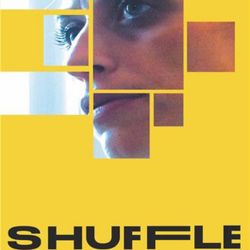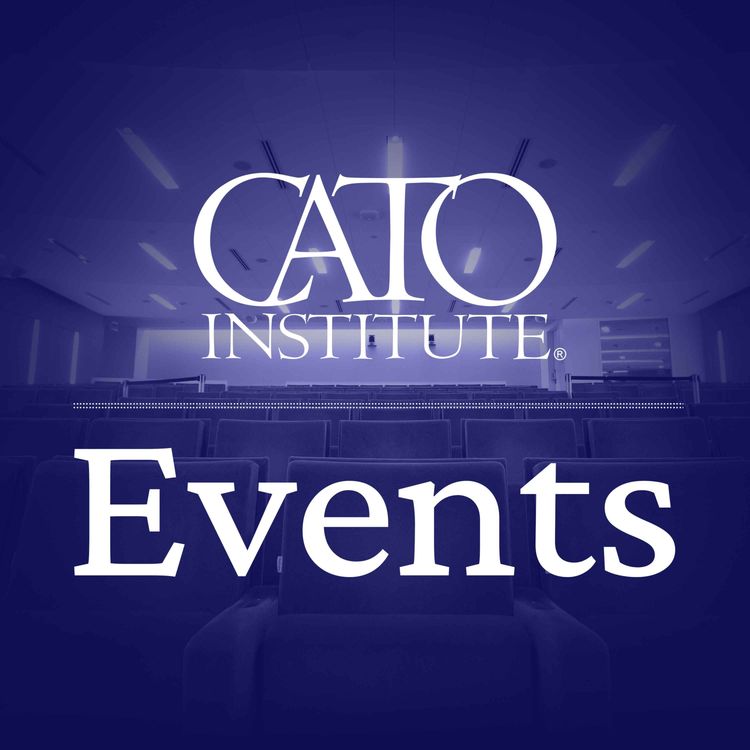More episodes
View all episodes

Retrench, Defend, Compete: Securing America’s Future Against a Rising China
01:30:29|The debate about US policy toward China hinges on rarely stated judgments about the nature of the challenge. Is China mainly a revisionist or a status quo state? Should the United States keep all its international commitments amid China’s rise? What military posture can best defend those commitments? In his latest book, Retrench, Defend, Compete, Charles Glaser assesses these first-order questions and promotes an alternative US strategy toward China that would retrench from some US commitments in Asia and bolster others. Please join us as Glaser and Patricia Kim discuss the book and grapple with the range of US choices, from grand strategic judgments to specific foreign and military policies.
No Compulsion in Religion—No Exceptions: Islamic Arguments for Religious Freedom
01:29:09|The Qur’an famously declares, “There is no compulsion in religion.” Yet, various forms of religious compulsion persist today in parts of the Muslim world, including death penalties for apostates and blasphemers, legal inequalities that disadvantage women and non-Muslims, and “morality police” who enforce strict norms on society.In this new book from the Cato Institute, Mustafa Akyol has assembled a team of Islamic scholars and intellectuals to articulate arguments against oppressive interpretations of Islam. Drawing on scriptural insights and contemporary realities, they contend that the Qur’anic principle of “no compulsion in religion” should be embraced fully, without exceptions.At this forum, Akyol will summarize key arguments from the book. Mirwais Balkhi will offer his commentary on the book’s significance for Afghanistan and the broader Muslim world.
Liberty, Literature, and Civil Discourse in the Classroom
58:33|As we approach the 250th anniversary of the Declaration of Independence, we recall the key principles that form America’s foundation. Of these, the “certain unalienable rights” the Founders declared are “life, liberty, and the pursuit of happiness.” Yet, the Founders saw “liberty” not as the freedom to do whatever one wants—but rather the freedom to act and live in ways that promote virtue. How does this understanding of liberty apply to our classrooms? How does civil discourse and viewpoint diversity create space for students to be free to act in ways that promote virtue? In this webinar, we’ll explore how the Founding concept of liberty, combined with principles of civil discourse, can guide discussions of challenging topics. Topics that will be covered include the problem of self‐censorship and the challenges of teaching content that some might find controversial, such as Mark Twain’s The Adventures of Huckleberry Finn. We’ll examine ways that educators can create spaces for students to courageously discuss the challenging ideas they encounter in a variety of texts (both historical and literary) while embodying the true spirit of liberty that the Founders envisioned. This webinar will consist of three parts. The first part will be a 30‐minute discussion between Kobi Nelson and three exemplary Sphere alumni: Nancy Wickham, Shannon Edwards, and Megan Thompson. The second part will include a Q&A with participants, and the third part will dive into resources that teachers can use to facilitate healthy conversation habits that honor the principles of liberty, civil discourse, and viewpoint diversity. All who attend will leave with practical, tangible tools that can be applied in classrooms, and educators will be empowered to create democratic spaces that honor free speech in their classrooms and schools.
Combatting Overcriminalization: From the Shark House to the White House
01:01:09|For centuries, the greatest protection against unjust convictions and punishments was the institution of jury independence, including so-called “jury nullification.” The prosecutions of John Moore and Tanner Mansell illustrate a scenario in which jurors—apprised of their historic injustice-preventing powers—would have rendered a not guilty verdict. But because John and Tanner’s jurors, who appeared desperate for a way to acquit, weren’t informed of their historic prerogative to acquit against the evidence to prevent injustice, they had no option but to convict.When the Cato Institute’s Project on Criminal Justice learned of John’s and Tanner’s plights, we took their case to the highest levels of government—ultimately resulting in presidential pardons for each of them. Please join us as we hear first-hand accounts, discuss what went wrong, explore how Cato got involved, and consider solutions to the pathology of unjust prosecutions and convictions.
SHUFFLE Directed by Benjamin Flaherty
01:05:40|Winner of the Grand Prize for Documentary at the 2025 South by Southwest Film Festival, Shuffle is filmmaker Benjamin Flaherty’s powerful exposé of unintended consequences in American health policy. Through intimate portraits of people seeking recovery from opioid addiction, Flaherty reveals how federal mandates—particularly within the Affordable Care Act and Medicaid—have unintentionally enabled predatory rehab operators to turn human suffering into revenue streams. The federal mandates are likely even increasing and subsidizing suffering, rather than reducing it.Join us for a screening of Shuffle in the Cato Institute’s F. A. Hayek Auditorium, followed by a discussion of what the film uncovers about the incentives that are shaping America’s addiction-treatment system and how policymakers, clinicians, and advocates can work toward more effective solutions.
Violent Saviors: The West’s Conquest of the Rest
01:32:23|In the name of material progress, the West has sought to develop and frequently exploit the less-developed “rest.” William Easterly will draw from 400 years of history—ranging from the conquest of the Americas and the Atlantic slave trade to colonization in Asia and Africa and the invention of the Third World—to show how the West has justified different forms of intervention in the societies it has purportedly intended to improve. Easterly will explain why development based on consent, choice, and human agency is superior to an approach that neglects dignity, focuses narrowly on material improvements, and too often justifies various degrees of coercion. Deirdre McCloskey will comment on the fundamental role of freedom in development.
Fiscal Democracy in America: How a Balanced Budget Amendment Can Restore Sound Governance
01:03:30|As America’s debt climbs and the danger of a fiscal crisis grows, is it time to add a constitutional guardrail? In Fiscal Democracy in America, Kurt Couchman proposes a principles-based balanced budget amendment (BBA) to address the persistent deficits in Washington in a flexible and politically feasible manner. Marc Goldwein draws on his experience in fiscal commissions and provides a challenge to the BBA as a silver-bullet solution to America’s fiscal crisis.How could a principles-based BBA work, and how would it handle entitlement programs, recessions, and crises? Why did previous attempts at a BBA fail, and what makes a principles-based BBA different? Is a BBA just a distraction from adopting specific policy reforms? And if an amendment were adopted, do other reforms need to occur to complement its implementation? Join us for a discussion with Kurt Couchman and Marc Goldwein, moderated by Romina Boccia.
Fighting for the Freedom to Learn: Examining America’s Centuries-Old School Choice Movement
01:01:39|The school choice movement is often seen as a modern, partisan undermining of a cherished institution: public education. Fighting for the Freedom to Learn shows that the struggle for educational freedom is not new but an enduring part of US history. It is rooted in traditions of parents and communities shaping how children learn and perpetual struggles for people without political power to get the education they believe they need.Join us to discuss this important new book!
The Risks of Expanding FDIC Deposit Insurance
51:31|Since the 1930s, the federal government has used the Federal Deposit Insurance Corporation’s (FDIC) deposit insurance to justify its increased involvement in banking. Now, in the name of supporting community banks, some policymakers have proposed raising the FDIC insurance cap from $250,000 to $10 million. They claim that in the wake of the bank failures of 2023, depositors fled from small banks and moved their money to “too big to fail” institutions that enjoy implicit government backing. Increasing the FDIC insurance cap, these policymakers argue, will encourage depositors to stay with community banks.Yet for nearly a century, Congress and the FDIC have continued to expand and increase federal involvement in banking, creating a complex web of regulation, increasing costs for consumers, and burdening American taxpayers. Despite these changes being implemented in the name of safety, a select few institutions still clamor for special protection.The proposed expansion will magnify all these problems, making the system more fragile and less resilient, and forcing millions of Americans to bear its cost. Sadly, this latest expansion would come at a time when an incredibly small share of depositors even need additional coverage.Join leading policy experts for a discussion on why expanding FDIC insurance is not only unnecessary but could also ultimately harm both the economy and the community banks it was designed to protect.
